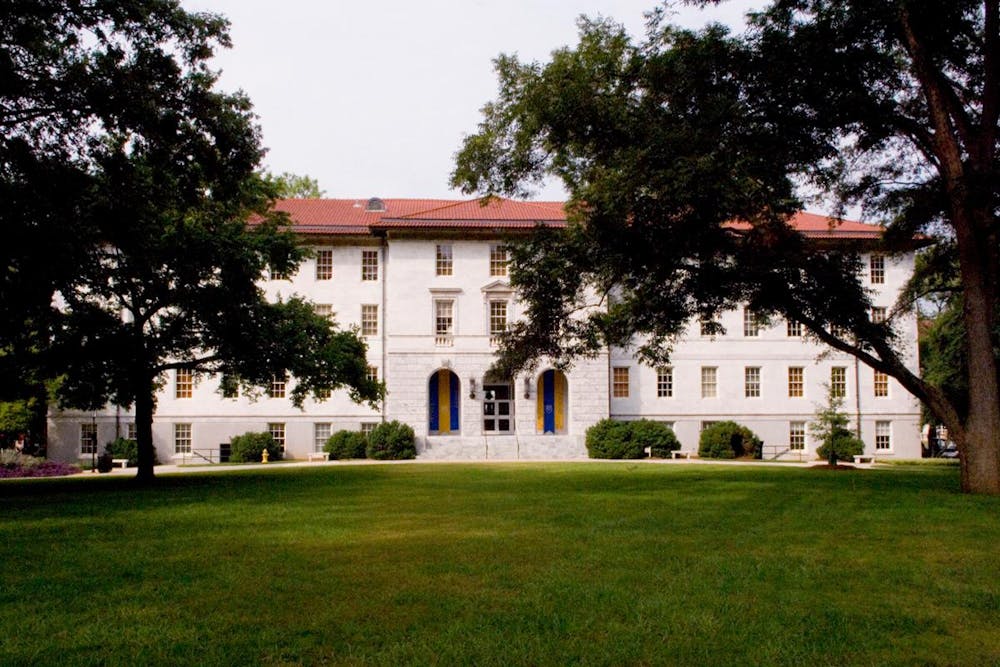On the afternoon of April 15, the Faculty Council unanimously approved a resolution defending academic freedom, Emory’s Open Expression Policy and its “principles for all members of our community.” This resolution comes amid national freezes for university federal funding.
The Trump administration has threatened to cut funding for public and private universities across the United States. Trump has presented colleges such as Harvard University (Mass.) and Columbia University (N.Y.) with lists of demanded changes to admissions policies, Middle East studies programs, disciplinary measures for students and diversity, equity and inclusion (DEI) practices to avoid cuts.
Some universities, like Columbia, have conceded to the changes and are implementing new policies, such as banning face coverings at protests. However, Harvard University (Mass.) recently rejected Trump’s demands, resulting in the Trump administration freezing billions of dollars in federal funding for the school, on April 14.
The Faculty Council titled the resolution “The Lines We Must Not Cross,” which Emory University Senate President-Elect Noëlle McAfee said was inspired by an op-ed by Professor of Classics Clifford Ando at the University of Chicago’s (Ill.), where he said the institution must stay true to its values, in the face of possible opposition from the federal government.
McAfee emphasized that the inspiration for proposing and passing the resolution was standing up for academic freedom.
“The Faculty Council really do represent and stand for the academic mission of the University, and core to that is academic freedom,” McAfee said. “The freedom to teach what we think is important, how we think is important.”
Associate Professor of Law and Faculty Council Elected Representative of the Law School Alexander Volokh applauded universities like Harvard that have attempted to resist federal demands and have chosen to stay true to their values.
“It’s good when universities put up a unified front because a lot of universities might be concerned that if they’re seen as resisting, they might be targeted more, but if every university acts together, then it’s harder to do that targeting,” Volokh said.
Volokh and McAfee both added that University President Gregory Fenves was present at the meeting.
When asked about Fenves’ views on the resolution, Assistant Vice President of University Communications Laura Diamond wrote in an email to the Wheel that the University is committed to “shared governance” with the Faculty Council and supports its emphasis on academic freedom.
“Academic freedom is a foundational principal upon which our teaching, learning, research and scholarship thrive. Emory will not shy away from defending it,” Diamond wrote.
Volokh said the attitude of the meeting was generally positive, with little opposition to the resolution.
The resolution claimed that demands from the federal government, such as erasing diversity, equity and inclusion programs from higher education institutions, encroach not only on the Emory community’s academic freedom and open expression but also on public health and safety. The writers mentioned how funding cuts to biomedical research could threaten Emory’s medical research.
In addition to its focus on academic freedom, the resolution also said the University Senate plans to protect community members subject to “arrest, deportation, and visa revocation.”
“We further commit to providing assistance to members of the University community whose legal status makes them vulnerable to state authority,” the resolution read. “Furthermore, we will help any member who travels abroad to rejoin our community of inquiry.”
McAfee said she is looking into how students who ICE may deported can continue their degree at Emory.
“We know how people can Zoom in and continue their studies so that they can finish,” McAfee said. “We need to step up for that, at a minimum, and then also provide legal assistance.”
Volokh said he hopes the resolution is heard beyond the Emory community and convinces universities nationwide to resist together against the Trump administration.
“[The resolution] shows people that there are institutions that are unwilling to accommodate the Trump administration,” Volokh said. “That’s helpful for the Emory brand in the long term, and I think it’s helpful for other institutions as they think what to do, because one of the things when you want to resist injustice is that it’s always very difficult for someone to do something if they think they’re the only one.”
McAfee urged community members to stay true to their values, even amid a federal government seeking to encroach upon academic freedom.
“It’s important to just think now, what are my values?” McAfee asked. “What are our values? What are we going to stand for? What will we not ever give up? Now’s the time.”

Ellie Fivas (she/her) (26C) is from Cleveland, Tenn., and is majoring in political science and history on the pre-law track. She manages the Wheel’s opinion section and the Editorial Board. When she is not writing for her political column Electoral Ellie, she works in prison education, leads a human rights club and works at the Emory Writing Center. In her free time, you can find her reading trashy romances and The New York Times, basking on the Quadrangle and doing crossword puzzles.

Jacob Muscolino (he/him) (28C) is a News Editor at The Emory Wheel. He is from Long Island and plans to major in History and Psychology. Outside of the Wheel, he is involved in Emory Reads and Emory Economics Review. You can often find Jacob watching the newest blockbuster for his Letterboxd, dissecting The New York Times and traveling to the next destination on his bucket list.






